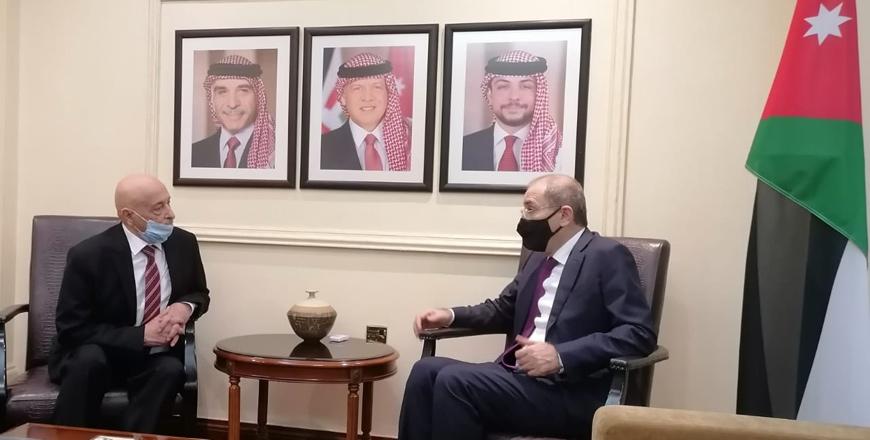- Local News
- Thu-2020-07-30 | 02:46 pm

During the meeting, Safadi highlighted the importance of intensifying efforts aimed at reaching a political solution through a "Libyan-Libyan dialogue” that halts the deterioration of the situation, protects Libyan people and safeguards the sovereignty and unity of Libya, according to a Foreign Ministry statement.
Safadi reiterated Amman's support to all political initiatives aimed at reaching a political solution to the crisis, namely the Skhirat agreement, the Berlin conference and the Cairo declaration, as well as all relevant Security Council resolutions. The foreign minister called for an immediate ceasefire and a return to negotiations to end the crisis and restore Tripoli's security and stability.
He also warned against "regionalising" the crisis and its risks on Libya and the security of neighbouring countries, stressing the importance of activating the Arab role to prevent foreign interference in Libya.
The security of Arab states is "intertwined", Safadi said, reaffirming Jordan's continuous efforts to preserve regional security, as well as to activate the Arab role, in cooperation with partners, to serve Arab issues.
Saleh, who is currently visiting Jordan, lauded the Kingdom's supportive stances to Libya, expressing appreciation for the Kingdom's efforts towards reaching a political solution to end the Libyan crisis, serving Arab interests and achieving security and stability.
Saleh also briefed Safadi about latest developments related to ceasefire and launching a political track to reach "a Libyan-Libyan agreement" to end the crisis.
Also on Wednesday, Safadi and Foreign Minister of Kosovo Meliza Haradinaj discussed means to enhance bilateral ties , regional developments and cooperation in the fight against the COVID-19 pandemic.
During talks over the phone, Safadi acquainted Haradinaj with the latest updates pertaining to the Palestinian issue and efforts exerted to form an international stance rejecting the Israeli annexation decision.
He highlighted the importance of resuming "serious and direct" negotiations to end the conflict based on the two-state solution and the international law, according to a separate Foreign Ministry statement.
The two
ministers also agreed to continue consultation and coordination over
issues of mutual interests and regional developments, according to the
statement.









